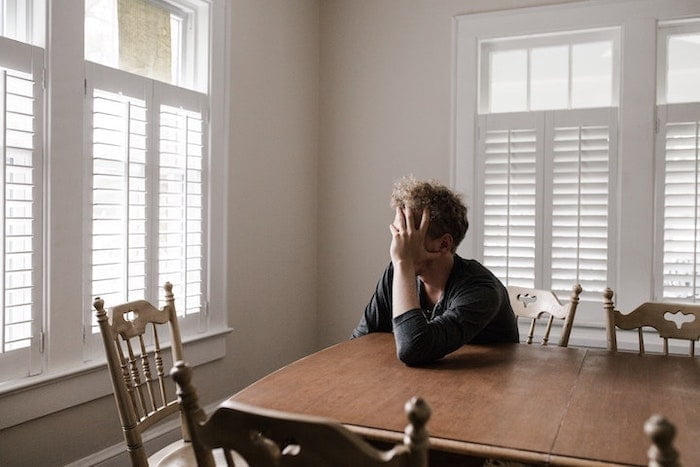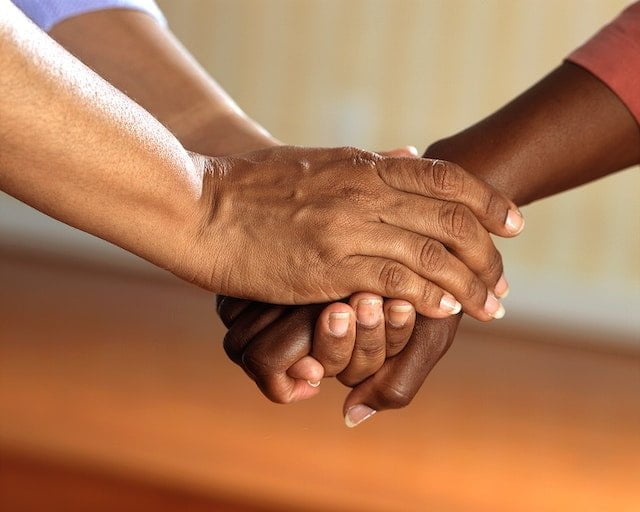Quick links for alcohol and gambling addiction
- Is gambling addiction a real problem?
- What are the risks of gambling addiction?
- What characterises a gambling addiction?
- Symptoms of a gambling addiction
- What causes alcohol and gambling addiction?
- How alcoholism and gambling addiction are similar
- The risk of suicide related to alcoholism and gambling addiction
- What is dual diagnosis in relation to alcoholism and gambling addiction?
- Treatment for alcoholism and gambling addiction
- Final thoughts on alcoholism and gambling addiction
The ripple effects of alcoholism and gambling addiction are widespread and come with many distressing effects.
A recent report stated that there were 9,008 people in Great Britain struggling with gambling addictions. [1]
It’s likely that there are many more with gambling addictions, but they are both unreported and not seeking treatment.
Sadly the nature of addiction also means that the majority living with this problem try to keep it hidden.
Is gambling addiction a real problem?

Man holding his head and speaking with a therapist about alcoholism and gambling addiction
For the thousands of people in the UK living with a gambling problem, as well as the people who are close to them, there is no doubt that gambling addiction is a real problem.
Interestingly, in terms of psychological and pathological perspectives, the idea of whether a person can be addicted to gambling has been the subject of debate for many years.
Recently, however, it’s more widely accepted that gambling addiction does exist. [2]
It’s defined as a behavioural or process addiction, which is a little different to a substance misuse problem (which is a pathological addiction).
Other behavioural addictions include those linked to the following:
- Shopping
- Video games
- Tanning (fake or under sunbeds)
- Social media
- Pornography
- Sex
- Exercise
Gambling addiction can develop at any age, although it’s predominantly seen to start in those who are younger or in their middle age.
It’s also much more common in men than women. [3]
What are the risks of gambling addiction?

Two people discussing alcoholism and gambling addiction
A person with a gambling addiction will experience a huge range of negative consequences linked to the behaviour.
When life is affected badly and the behaviour becomes compulsive, it’s clear that a problem exists.
A person’s finances are usually ruined by gambling addiction.
This can mean credit and debit card debts, the stress related to payday loans, and falling behind in bills and house payments.
Many people who have lost control of their money will experience the knock-on effect of losing their mortgage or rental property.
Along with the above, deterioration of relationships with family members and friends is very common. Money-related worries as well as strain related to behaviours such as being secretive or lying to cover up the habit can really damage personal connections.
What characterises a gambling addiction?

Person holding their face suffering from the effects of alcoholism and gambling addiction
Gambling addiction is characterised by a repetition of behaviours despite how negative the consequences can be.
A person without a gambling addiction is able to stop gambling when they reach their limit of loss.
On the other hand, a person addicted to gambling will continue past this limit.
They’re hoping to recover the money they have lost and will also be seeking the “high” from placing the bet and the feeling that occurs if the bet “pays” off.
Symptoms of a gambling addiction

Woman speaking with a therapist about alcoholism and gambling addiction
At its worst, gambling addiction will destroy a person’s life.
f you’re uncertain whether someone you care for has a problem with it, you can look out for various symptoms. [4]
The following signs indicate a problem with gambling:
- Constantly thinking about gambling
- Planning how to play and get money
- Borrowing money
- Secretive behaviours – trying to hide the behaviour
- Trying really hard to stop, but not being able to
- Criminal behaviour to try and secure money to gamble
- Financial debt
- Mental health problems
- Increased drinking
As with all addictions, a gambling addiction can be mild, moderate or severe.
What causes alcohol and gambling addiction?

Two men in a rehab clinic talking about alcoholism and gambling addiction
Addictions are connected to the reward systems in the brain.
Participation in a fun or exciting activity releases the chemical dopamine, making the user feel good.
Many people with a gambling problem report feeling a high around their betting behaviours.
Like substance addictions, a person will feel the urge or compulsion to gamble again and again to try and get the same high.
Where alcohol physically restructures the brain (this is how dependency to the substance occurs), a gambling addiction won’t.
This is why there is a debate about whether gambling can create an addiction, although for the most part it is considered a legitimate addiction in need of professional support.
How alcoholism and gambling addiction are similar

Support group discussing alcoholism and gambling addiction
Like an addiction to alcohol, gambling triggers the reward centres in the brain.
It can create a feeling of euphoria and people can withdraw from gambling. This might be experienced through headaches, irritability, and sleep problems.
Both alcohol and gambling create a psychological space of escape.
This is a type of coping mechanism insofar as both conditions are a way to distract or ease symptoms of stressful events or mental health symptoms.
Each behaviour, that of drinking and gambling, can make the other worse.
Often, people who are craving to place a bet might drink. Also, drinking is associated with gambling in locations such as casinos.
For many, the highs and lows of gambling are associated with alcohol.
People will drink to celebrate perceived gains and commiserate losses.
This is why it’s common to develop drink problems alongside gambling. [5]
Like substance misuse problems, gambling addiction is often linked to other mental health problems.
The risk of suicide in alcoholism and gambling addiction

Two people holding hands and talking about alcoholism and gambling addiction
Both alcohol and gambling addictions are linked to high rates of suicidal thoughts and behaviours.
Of those with gambling problems, a fifth report feeling suicidal. [6]
For those with drink problems, it’s evidenced and acknowledged in research that there is a close relationship between alcoholism and suicide. [7]
With this in mind, it’s incredibly important that people are made aware of three points:
- There is no shame in admitting to an addiction.
- Treatment is available.
- Treatment is appropriate for those with gambling and alcohol problems as these are mental health and behavioural illnesses that require a total approach to aid recovery.
What is dual diagnosis in relation to alcoholism and gambling addiction?

Patient and specialist discussing alcoholism and gambling addiction
Dual diagnosis is where two conditions exist at the same time. It’s also known as a comorbid condition.
The majority of people living with alcohol and/or gambling problems will also be experiencing symptoms related to a mental health issue.
In fact, mental health problems are often the cause of addiction.
Many people turn to self-medicating when they feel stressed, anxious, depressed, or if they’re experiencing the ongoing impact of traumatic events.
Self-medicating is where a person takes up a substance or behaviour to “escape” the difficult feelings they are faced with.
Treatment for addiction, gambling, and mental health problems is essential. This offers the easiest way to begin a life where the person is able to take back control of their behaviours and lead a more healthy and fulfilling life.
Treatment for alcoholism and gambling addiction

Support group for alcoholism and gambling addiction comforting a fellow member
There are many local rehabilitation options to treat alcohol and gambling problems.
Inpatient clinics, where a person will stay for a length of time to engage in the treatment, are the most useful at the start of this type of recovery.
It’s important to be treated for the two problems at the same time in order to help prevent relapse.
A stay at rehab provides a well-rounded approach that recognises how both the problems make each other worse. Therapists and alcohol workers are trained to treat both areas.
Rehab programmes will equip people with how to reframe thoughts. Treatment and ongoing access to outpatient services will enable the person to find contentment without yearning for the “high” gambling and the crutch of alcohol.
Treatment typically consists of a combination of therapies.
Cognitive Behavioural Therapy is usually an essential aspect. It helps a person to understand how they’re triggered.
Triggers might occur through both internal and external stimuli.
It also addresses how to control behaviours.
Additionally, 12-step programmes are a vital part of rehab. These groups have shown to be highly effective at managing both alcoholism and gambling addiction over a length of time.
This helps millions of people throughout the world to stay abstinent from both.
Final thoughts on alcoholism and gambling addiction

Alcoholism and gambling addiction peer support group meeting together
Gambling and alcohol addictions are extremely problematic where they exist alone.
Both cause damage in relationships and can create huge issues around finances, housing, and employment.
The addictions are especially a cause of concern where they exist together. Both are linked to an increased risk of suicidal thoughts and behaviours.
Rehabilitation programmes provide a safe and compassionate approach to healing all aspects of the problems.
A life of recovery where a new purpose and meaning is created is possible for those who seek it out.
OK Rehab supports people into rehab every day. To find out what your local options are, get in touch.
References to alcohol and gambling addiction
- https://www.begambleaware.org/media/2289/annual-stats-2019-20.pdf
- https://www.mentalhealth.org.uk/explore-mental-health/a-z-topics/gambling-and-mental-health
- https://link.springer.com/article/10.1007/s10899-023-10232-z
- https://www.nhsinform.scot/healthy-living/mental-wellbeing/addictions/problem-gambling/
- https://www.ncbi.nlm.nih.gov/pmc/articles/PMC6683819/
- https://www.sciencedirect.com/science/article/pii/S0033350620300883
- https://psycnet.apa.org/record/1984-20737-001






